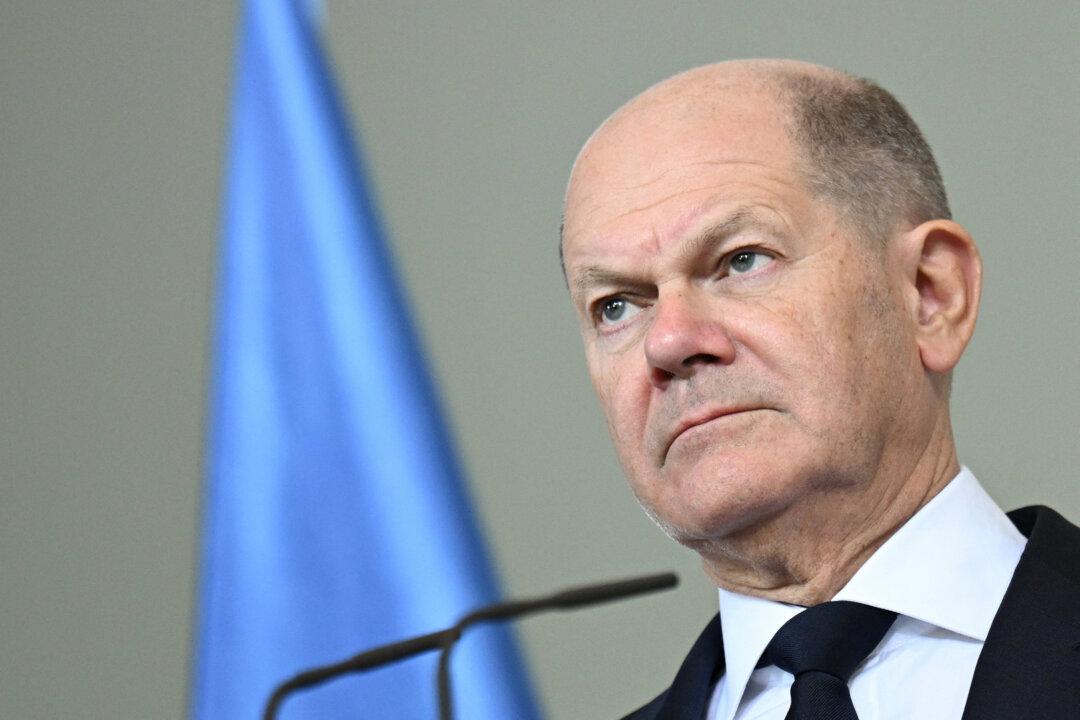German Chancellor Olaf Scholz spoke with Russian President Vladimir Putin for the first time in nearly two years on Nov. 15.
During the call, Scholz urged Putin to open negotiations with Ukraine to end the war there.

German Chancellor Olaf Scholz spoke with Russian President Vladimir Putin for the first time in nearly two years on Nov. 15.
During the call, Scholz urged Putin to open negotiations with Ukraine to end the war there.